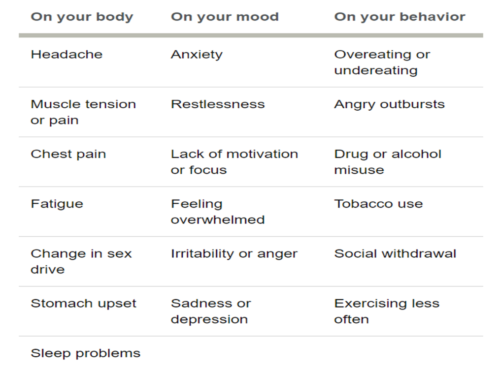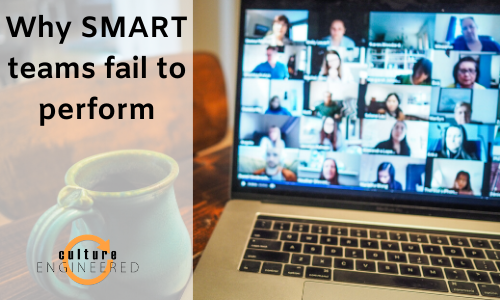Usain Bolt is the current 100m world record holder. A nine-time gold medal holder, Bolt broke the world record in 2009, running the 100m race in 9.58 seconds with a top speed of 27.8 miles per hour. It’s no mystery why he’s referred to by many as the “fastest man alive”. In 2017 however, in what was known to be Bolt’s final race, he was unable to even finish same 100m distance. Approximately halfway through his leg of a 4 x 100m relay, Bolt fell to the track, visibly in pain, due to an injury he later attributed to a torn hamstring.
For most of us, this is not a surprise. Recognizing hamstrings important to sprinting, it seems natural that performance would be compromised by a tear, even for an elite athlete such as Usain Bolt. So, why are we surprised when an employee’s work is compromised when he is in a bad mental or emotional state? Okay – I can actually hear some of you rolling your eyes but I assure you, it’s the same. Let’s talk brain function.
Jobs today depend mostly on a person’s cognitive capabilities and/or emotional intelligence. Sales professionals, customer service reps, teachers, technicians, accounting, administrative work….success is contingent on a person’s ability to reason, apply logic, interact with others, and innovate. And our ability to perform these functions is controlled by our mind. As a rather small person with a historically weak immune system, this is great for me as physically (I’m not exactly winning any strongman competitions or powerlifting championships). While my strength and endurance may be limited by my genetics and stature, learning new skills and managing my emotions to boost mindset is much more my speed. Unfortunately though, threats to mindset are less recognizable than physical threats as they originate in our own beliefs and perceptions. Unlike Bolt, I won’t fall to the ground, writhing in pain when I’m feeling a down. Since 1999, Harvard Business Professor, Dr. Amy Edmonson, has researched psychological safety’s impact on teams. Psychological safety, a shared belief within a team that no one will be punished or humiliated for speaking up with ideas, questions, concerns or mistakes, is popular with high-performing teams. Google, in their 2015 Project Aristotle study, confirmed psychological safety’s importance on work – finding it to be the #1 driver of high-performing teams. So, if a belief, a mindset is conducive to good work, how can mindset hinder work?
A Threat to Mindset is a Threat to Business
In the story of mindset, there is only one bad guy. That bad guy is stress. Stress impairs cognitive function and changes us on a biochemical level. According to the Mayo Clinic, chronic stress impacts us physically, emotionally, and behaviorally (Fig 1).

Fig 1: Common effects of stress by the Mayo Clinic staff article, “Stress symptoms: Effects on your body and behavior”
Whether stress is due to personal reasons or work-related, when we’re in a stressful state, it’s bad, for us individually and our businesses. We make mistakes and errors that we typically wouldn’t. Due to cognitive biases, interactions with colleagues and managers can easily be filtered through a lens of negativity. Comments that would normally seem harmless appear aggressive and actions seem calculated. We can’t focus and struggle to stay motivated. We feel overwhelmed and isolate ourselves, withdrawing from our teammates, friends, and even families, unaware we’re going further into the perception that is dragging down our mindset. In a poor mindset, we suffer and so does our work. It should not be assumed, but expected that any work done with compromised mindset will surely pale in comparison to work performed by the same team or individual in an optimal mindset.
Optimizing Mindset
The goal, for any leader, is to maximize mindset. While potential will always vary person-to-person, optimizing mindset helps leaders from wondering, is it them or is it me? Because leaders should be hiring smart, competent people, understanding how to cultivate mindset will be what separates the managers from leaders in the future of work. Creating a climate in which employees work collaboratively and perform their best comes down to 4 key points:
- Prioritize team mindset. Improving or maintaining a positive team mindset should come first. Before starting a project or work for the day, assess current and collective team mind set against mindset necessary for work to be valuable.
- Inspire employees to beware and accountable for their own mindset. Get employees out of a reactive state of mind by encouraging them and giving pause for self-reflection. How are they feeling today? What needs to change for them to be in a better mindset, conducive to great work?
- Use transparency to encourage trust & collaboration. Transparency empowers a team with to solve problems, creatively. Through collaborating on solving a problem, people feel they belong, a valuable component of team psychological safety.
- Speak with purpose. What happens when the team doesn’t show up in a good mindset? When people fail to be aware of their state of mind and work in autopilot? Individually we disconnect, teams underperform, companies lose money, and customers churn. Speaking with purpose prevents the team from confusing activity with results.
Richard Weisman, a Professor with Hertfordshire University in 1993 began to investigate the concept of luck. Over a 10-year study of hundreds of exceptionally lucky and unlucky people, he determined “lucky” people actually generate their own good fortune via four basic principles: 1) they are skilled at creating and noticing chance opportunities, 2) they listen to their intuition, 3) they have positive expectations, and 4) using resilience they transform bad luck into good. In short, luck is neither a gift or a curse, but a mindset. Positive mindset teams search for opportunities to improve and succeed. Negative mindset teams dwell on mistakes and anticipate losses. Which employee mindset is working for you?
